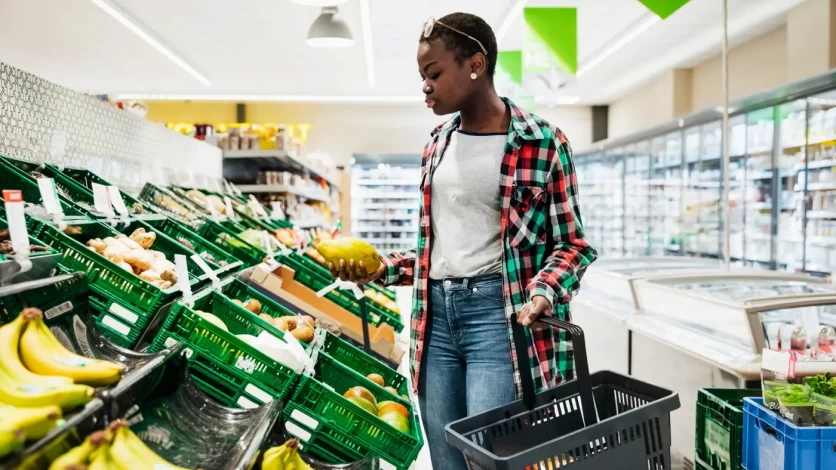
Photo: Collected
Nutrition Strategy Director, Maxim Yermolayev and Ice Cream Innovation Lead, Fatma Tek share their expert insights into five consumer behaviours and food trends that will see more people making plant-based eating part of their daily diet in 2023.
This year, one person signed up every 2.4 seconds on the first day of January to eat plant-based food for 31 days. Of those who complete the annual Veganuary challenge, 36% will remain vegan, but the majority who won’t also say they plan to reduce their meat intake by more than 50% in the long term.
“One in four people now identify as flexitarian,” says Unilever’s Ice Cream Innovation Lead, Fatma Tek.
“Only one in ten of us eat the recommended daily amount of fruit and vegetables. Almost 15% of all greenhouse gas emissions derive from the meat and dairy industries. Eating plant-based is good for people’s health and it’s good for the planet,” he says.
The great unlock is finding those trends and behaviour tipping points that will make it mainstream.
Here are five trends that Maxim and Fatma believe will put more plants on plates in 2023.
1. Hassle-free plant-based solutions
“Convenience is king,” says Maxim. People want meat-free meal options that are flavourful and fuss-free. Expect to see…
Everyday inspiration for easy plant-based meals. As well as finding plant-based recipes on Knorr product packs and Recipedia and in The Vegetarian Butcher cookbook, consumers can search Hellmann’s site, part of which is dedicated to recreating meals that have gone viral on TikTok. They can even cook along with Knorr’s award-winning TikTok campaign which saw German musicians sing recipes to encourage younger consumers to ‘Eat more Veggies’.
More veggie options in recipe box subscriptions and meal kits. The global market for meal kits is growing by almost 15% and, with it, the number of consumers actively ordering boxes with more vegetarian/vegan meals. The Vegetarian Butcher partnered with meal-kit provider Marley Spoon in several European markets to create a special ‘vegan only’ box to showcase the variety of recipes that could be cooked from scratch using plant-based meat, with none of the sacrifices.
Plant-based prompts at the till in e-grocery/quick commerce. E-grocery shopping is expected to account for more than 20% of the market in 2030, driven by the substantial expansion of instant delivery. “Last year, we learnt that vegan and non-dairy products are almost three times more relevant in our virtual ice cream stores,” says Fatma. “By offering vegan meal deals in our food chains, to full vegan bundles in virtual stores and quick commerce channels, our ice cream quick delivery service (Ice Cream NOW), is also prompting consumers to consider adding non-dairy options to their shop at the checkout.”
2. Climate considerations influencing purchase decisions
Consumers are increasingly aware of the food system’s climate impact and are making that part of their purchasing decision. Expect to see…
Clean labels and ingredient transparency. Global and local brands will look to offer full transparency on which ingredients are used and why. You can see this demonstrated globally by The Vegetarian Butcher and locally in the Netherlands in Unox’s new range of plant-based soups called ‘Goedgevuld’ (meaning ‘well filled’).
Brands communicating the climate impact of plant-based choices. In 2022, The Vegetarian Butcher was named Most Sustainable Brand by the Sustainable Brand Index (Europe’s largest independent brand study on sustainability) for the way it communicates its mission and impact. This included an impact report. It also developed an ‘impact calculator’ that allows consumers to calculate their own positive impact when they adopt plant-based in place of animal meat.
Comment Now